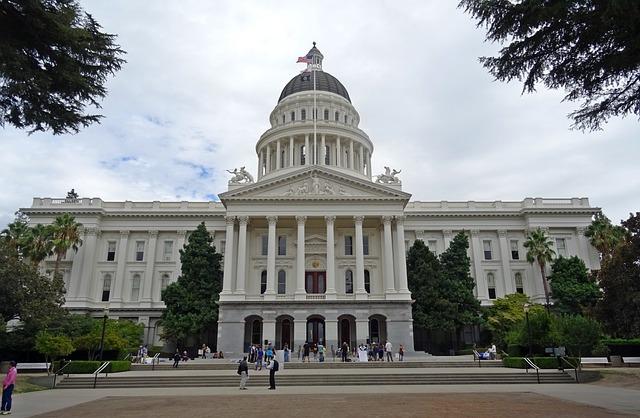Legislative Wrap-Up
The pace of health care policy never seems to slow down. As the Medi-Cal program has grown in size and sophistication, Medi-Cal-related legislation has enhanced focus on issues such as access, quality, accountability, coordination and oversight. These are the right things to focus on. Throughout the year, LHPC engaged with policymakers and our Medi-Cal colleagues to shape legislation that will continue to grow and improve the program and the care we provide to our Medi-Cal beneficiaries. Taxes. Sanctions. Oversight. Data sharing. We covered it all in the first half of the 2019-20 legislative session.
Sustaining the Medi-Cal Program
AB 115 (Committee on Budget)
In the final week of Session, the Legislature passed AB 115 to reauthorize the Managed Care Organization Provider Tax (MCO tax). Revenue from the MCO tax has provided critical and stable funding for Medi-Cal since its inception in 2009. LHPC was pleased to support AB 115, consistent with our historical support of previous versions of the tax. If approved by the Centers for Medicare & Medicaid Services, the tax could generate nearly $7 billion to support the Medi-Cal program over the next three and a half years.
Connecting Access, Quality and
Accountability
AB 1642 (Wood, D-Santa Rosa)
Both lawmakers and the Administration dedicated significant attention this year to ensuring access and quality care for Medi-Cal enrollees. AB 1642, authored by Assembly Health Committee Chair Jim Wood, addresses these issues by strengthening network adequacy requirements. Due to provider and workforce shortages, the Medi-Cal program has grappled with providing access to care in rural or remote parts of the state for many years. However, access has received increased attention and scrutiny following implementation of new network adequacy standards in 2018 required by federal regulations and state statute. AB 1642, which is now on the Governor’s desk, requires Medi-Cal managed care plans to make additional efforts to contract with specialists and demonstrate how they use approaches such as telehealth or arranging transportation to decrease barriers to receiving care.
The bill also increases the authority of the Department of Health Care Services (DHCS) to sanction managed care plans. The language, which was initially proposed in the May Revision but was incorporated into AB 1642 to allow for further public dialogue, heightens the stakes for managed care plan compliance. While maintaining due process for plans, AB 1642 increases sanction dollar amounts and enumerates a long list of reasons for which a plan may be sanctioned.
The language in AB 1642 regarding DHCS sanction authority accompanies a broader strategy to improve quality and increase oversight in Medi-Cal. Earlier this spring, DHCS announced significant changes to its quality framework, including new and additional measures, increased performance standards and additional monitoring activities. A crucial missing component of the framework, however, is a mechanism to incentivize quality outcomes. LHPC advocated that the Administration incorporate quality incentives into its overall strategy for improving quality in Medi-Cal but, unfortunately, DHCS has not yet adopted this approach. Incentivizing and rewarding quality outcomes and improvement will be a priority for LHPC as planning for the renewals of the 1115 and 1915(b) waivers begin later this fall.
Putting a Spotlight on Mental Health Access and
Coordination
SB 66 (Atkins, D-San Diego)
AB 1175 (Wood, D-Santa Rosa)
Senate Pro Tempore Toni Atkins championed access to mental health treatment for Medi-Cal beneficiaries through her bill, SB 66. The legislation allows Federally Qualified Health Centers (FQHCs) to bill for a mental health visit on the same day as a medical visit, thus preventing beneficiaries from having to return for a mental health appointment at a later date. Only one-third of Californians with a mental health condition report receiving treatment in the past year — SB 66 would reduce barriers to accessing this critical care. While SB 66 is now a two-year bill, LHPC is a proud co-sponsor along with the California Primary Care Association, the California Association of Public Hospitals, and the Steinburg Institute. LHPC looks forward continued conversation next year about the importance of access to mental health treatment.
Mental health care coordination was another area of legislative focus. Authored by Chair Wood and awaiting the Governor’s signature, AB 1175 addresses the challenge of coordinating care across Medi-Cal’s siloed delivery systems. Individuals with mental health conditions are perhaps among the most impacted when their care is uncoordinated, as it is common for this population to have co-morbid physical health conditions. Language in AB 1175, crafted by LHPC in close partnership with the author, sponsors and counties, addresses barriers to sharing information between county mental health plans and managed care plans. In addition to specifying specific data elements to be shared between plans and counties, the bill requires DHCS to develop guidance to ensure implementation is consistent with relevant privacy rules. Care coordination for Medi-Cal beneficiaries with behavioral health conditions will continue to be a focus of LHPC’s advocacy as waiver discussions begin this fall.
Strengthening Medi-Cal Managed Care Plan Oversight of
Subcontractors
SB 503 (Pan, D-Sacramento)
Another focus of the Legislature in 2019 was oversight of Medi-Cal managed care plan subcontractors. Senate Health Committee Chair Richard Pan authored SB 503, which increases plan auditing requirements of subcontracted entities. To ensure that subcontractors are complying with their contractual obligations to deliver care to Medi-Cal beneficiaries, this bill requires that plans conduct annual and surprise audits. Additionally, LHPC developed language in the bill that will streamline Medi-Cal managed care plan audits of its subcontractors by requiring DHCS to develop a standardized audit process that all plans must follow.
While the final disposition of these bills is now in the Governor’s hands, LHPC was pleased to partner this year with legislators and their staff, advocates and associations on important legislation that will strengthen the Medi-Cal program.


